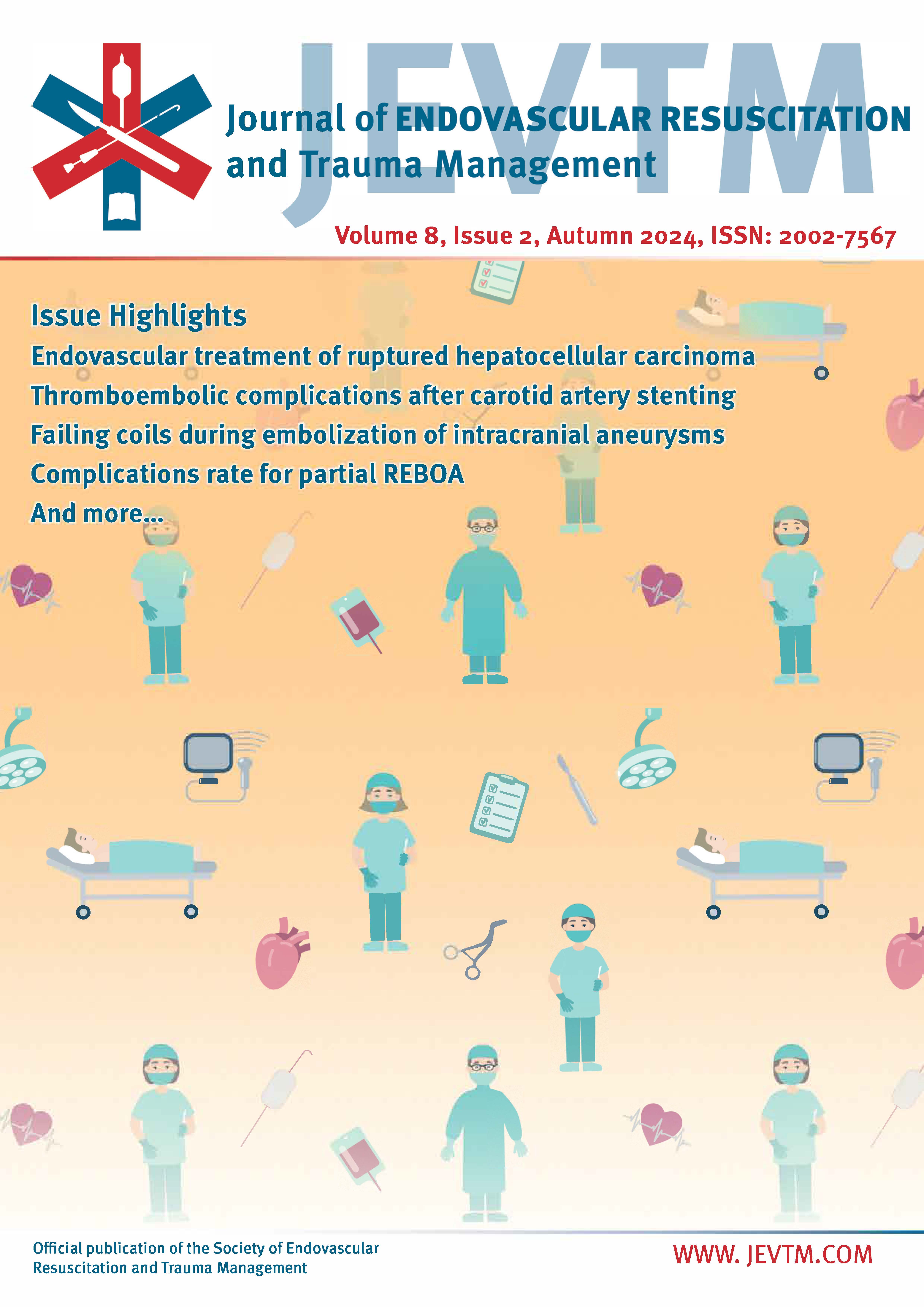Prevalence and Contraindications of Resuscitative Endovascular Balloon Occlusion of the Aorta (REBOA): A Comparative Study of Severe and Nonsevere Traumatic Brain Injury Patients
DOI:
https://doi.org/10.26676/jevtm.23392Keywords:
REBOA, Resuscitation, Resuscitative Endovascular Balloon Occlusion of the Aorta, Traumatic Brain InjuryAbstract
Background: Traumatic brain injury (TBI) is the leading cause of poor neurological outcomes and multiple organ failure worldwide. The use of resuscitative endovascular balloon occlusion of the aorta (REBOA) has been proposed to increase proximal pressure above the balloon to proximal organs, particularly improving cerebral and cardiac perfusion. This study assessed the prevalence of REBOA candidates and absolute contraindications in major trauma patients with varying TBI severities.
Methods: A retrospective analysis was conducted on 1158 major trauma patients who were transported to a Level I trauma center in Bangkok, Thailand, between 2020 and 2021. After exclusions, we analyzed two groups: 258 patients with severe TBI and 293 with nonsevere TBI.
Results: REBOA candidacy was significantly greater in the nonsevere TBI group (65.5% vs. 37.2%, p < 0.001). This group also exhibited more severe bleeding in regions below the occlusion where bleeding control is critical: abdomen- to-groin (58.7% vs. 29.1%, p < 0.001), intra-abdominal sources (47.1% vs. 23.3%, p < 0.001), and unstable pelvic injuries (19.1% vs. 9.3%, p = 0.002). In addition, the nonsevere TBI group had a greater prevalence of REBOA contraindications: overall (44.0% vs. 1.9%, p < 0.001), aortic (30.4% vs. 1.2%, p < 0.001), and cardiac (18.1% vs. 1.2%, p < 0.001) injuries. Concomitant conditions were more frequent in the nonsevere TBI group (5.5% vs. 1.2%, p = 0.012).
Conclusions: The nonsevere TBI group demonstrated significantly more potential REBOA candidates, absolute contraindications, and concomitant conditions than the severe TBI group. These findings underscore the need for a comprehensive evaluation of the advantages of REBOA in unstable patients comparing severe and nonsevere TBI patients.
Downloads
Published
How to Cite
Issue
Section
License
Copyright (c) 2024 Tanut Sornmanapong, Tongporn Wannatoop, Peerayuht Phuangphung, Chidpong Siritongtaworn, Pornprom Muangman, Nantaporn Namviriyachote

This work is licensed under a Creative Commons Attribution 4.0 International License.
Authors of content published in the JEVTM retain the copyright to their works.
Articles in the JEVTM are published under the terms of a Creative Commons CC BY 4.0 license, which permits use, downloading, distribution, linking to and reproduction in any medium, provided the original work is properly cited.




